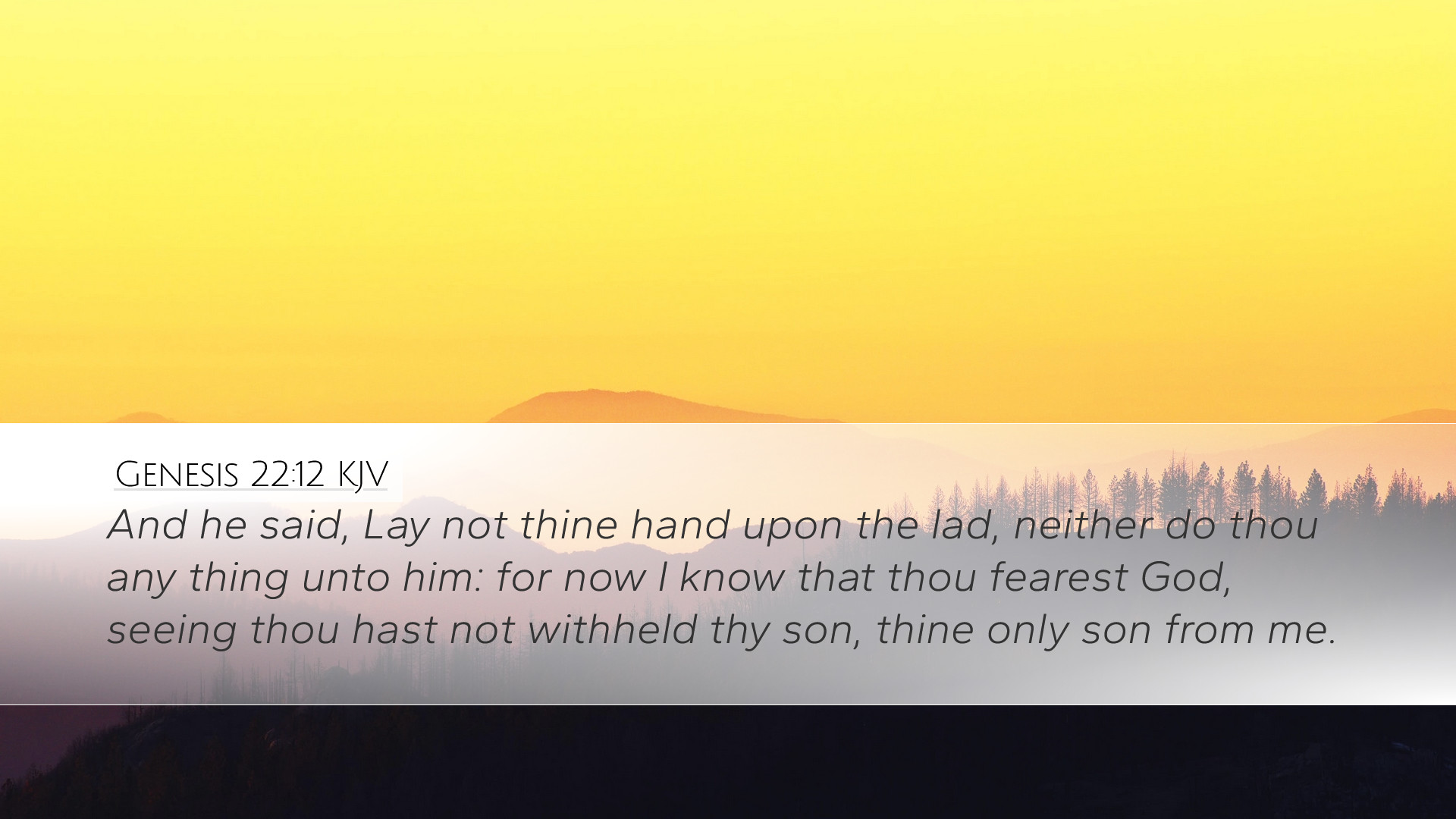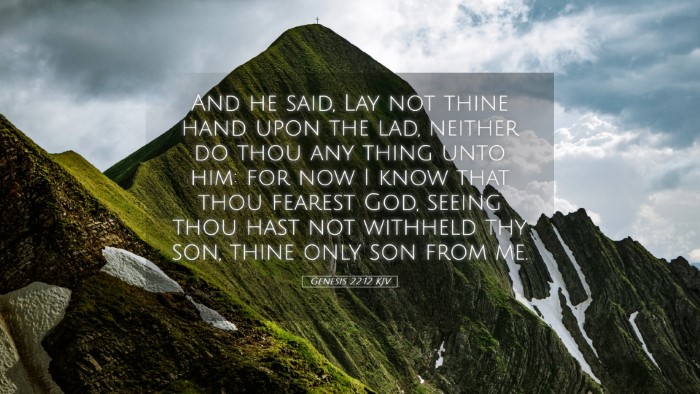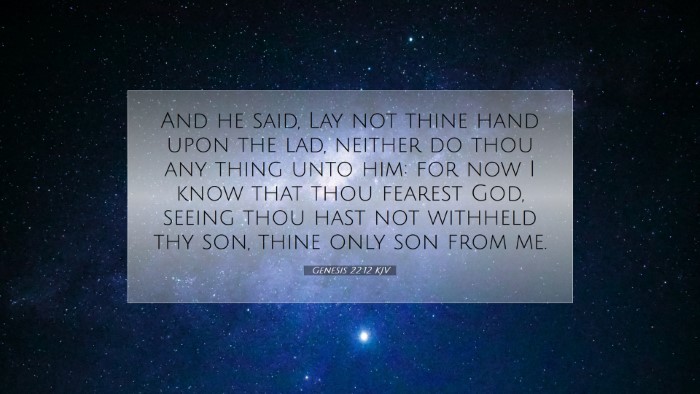Commentary on Genesis 22:12
Verse: Genesis 22:12 - “And he said, Lay not thine hand upon the lad, neither do thou any thing unto him: for now I know that thou fearest God, seeing thou hast not withheld thy son, thine only son from me.”
Contextual Overview
This verse is a pivotal moment in the narrative of Abraham's near-sacrifice of Isaac. To fully appreciate its significance, it is crucial to understand the background and implications of this act of faith.
The Call to Sacrifice
In the preceding chapters, God calls Abraham to leave his homeland and promises him a great nation through his descendants. Isaac, the long-awaited son of promise, represents all that God has promised to Abraham. Thus, the command to sacrifice Isaac poses a profound test of Abraham's faith and obedience.
Insights from Public Domain Commentaries
Matthew Henry's Commentary
Matthew Henry emphasizes the gravity of Abraham’s obedience. He notes that the command to sacrifice Isaac was not only a test of Abraham's faith but also a prelude to the understanding of God's ultimate plan for redemption. The crucial turning point indicated in verse 12 is God's affirmation that Abraham's fear of God is evident through his willingness to give up his beloved son. Henry comments, "The greatest proof of our love to God is our readiness to part with that which is dearest to us."
Albert Barnes' Commentary
Albert Barnes provides a theological interpretation, suggesting that this act was a foreshadowing of God’s own sacrifice of His Son, Jesus Christ. Barnes points out that God did not relent from asking for Isaac, and this highlights the gravity of the test. The phrase "now I know" signifies a moment of realization; God confirms Abraham's faith through action. Barnes asserts that God's command was not without purpose, for it revealed Abraham’s heart and reaffirmed the covenant promises that follow.
Adam Clarke's Commentary
Adam Clarke, known for his extensive annotations, elaborates on the emotional turmoil that Abraham must have faced. Clarke emphasizes the joy of hearing God’s mercy after such a trial. The command for Abraham to not harm Isaac reveals God’s merciful nature, indicating that true religion is reflected in the obedience that stems from love. Clarke also notes that this passage is deeply rooted in the larger narrative of God’s salvation plan and anticipates the ultimate sacrifice.
Theological Significance
-
Faith and Obedience: This moment illustrates the essential connection between faith and obedience. Abraham's actions demonstrate that genuine faith often requires personal sacrifice and trust in God’s promises.
-
Typology of Sacrifice: The parallels drawn between Isaac's near-sacrifice and Christ’s ultimate sacrifice are undeniable. Such typology highlights the overarching theme of redemption throughout scripture.
-
God's Provision: This narrative ultimately leads to a profound understanding of God's provision for salvation. Just as Abraham was provided a ram in place of Isaac, God provides Jesus as the perfect sacrifice for humanity's sins.
Application for Today
Pastors and theologians can draw from this passage the importance of trusting God in the most challenging circumstances. The call to sacrificial faith remains relevant, urging believers to evaluate what they hold most dear. This text invites us to consider our own willingness to surrender our "Isaacs" to God and trust in His ultimate plan.
Additionally, students and scholars can explore how this narrative shapes our understanding of covenant relationships in the Bible. The dialogue between God and Abraham is not just a moment of testing but a declaration of the enduring faithfulness of God in keeping His promises.
Conclusion
Genesis 22:12 serves as a profound reminder of the depth of God’s call on our lives and the nature of our response. The interplay of divine command and human obedience reveals timeless truths about faith, sacrifice, and God’s ultimate plan for salvation. As believers reflect on this narrative, they are compelled to examine their own faith journeys and the extent of their trust in God's promises.


